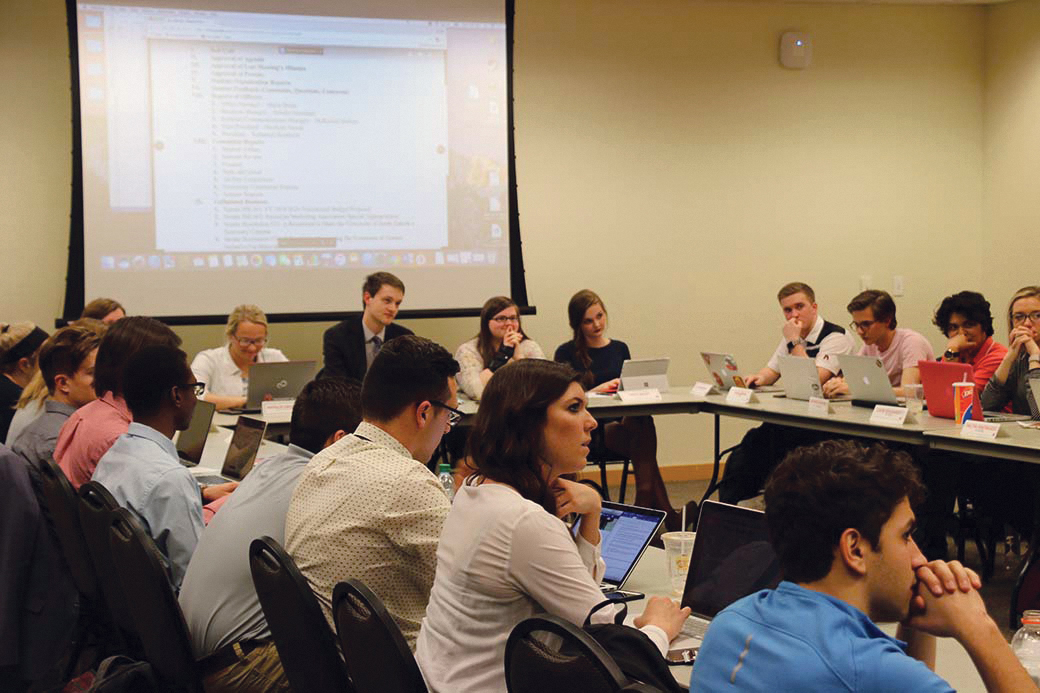
Editorial: Senate Bill 103 is redundant, misinformed, misses the mark
Recently, Sen. Stace Nelson, R-Fulton, introduced Senate Bill 103 into the state legislature. The bill aims to prevent undocumented students from attending state institutions of higher learning, or receiving in-state tuition and financial aid.
In an interview with The Volante, Sen. Nelson referenced an article in the Argus Leader in which there were admissions from Scott Pohlson, vice president of enrollment, marketing and university relations, that there were three undocumented students on campus.
“There were admissions from the school that they had illegal aliens going to school down there,” Nelson said. “So right away, that caused concern.”
The article Sen. Nelson is referring to was written in reaction to a sanctuary campus resolution introduced by former Student Government Association senator Joshua Arens. It was passed, but vetoed by former President Nathaniel Steinlicht. So, at the end of the day, USD was not a sanctuary campus. And still is not. With that being said, Senate Bill 103 misses the mark entirely.
Students already have to provide some sort of documentation proving their in-state residency, otherwise, they are charged out-of-state tuition. Also, to qualify for financial aid, applicants must provide a high school diploma or an equivalent (GED).
Sen. Nelson expressed concerns about taxpayers funding education for undocumented immigrants. However, a report filed by the SDBOR in 2016 stated the “fiscal impact of admission of undocumented students is negligible.” Sen. Nelson, when asked about this report, said using “even one dollar of taxpayer dollars” is unacceptable.
But let’s consider the alternative.
USD applications require students to check a box regarding their status as a U.S. citizen, resident alien or other. The purpose of this measure is to evaluate students for in-state tuition eligibility, not necessarily to check legal status.
At the moment, according to an email from Mike Rush, executive director and CEO of the SDBOR, universities are not equipped with the necessary tools to determine if applicants are truly what they claim to be.
If the bill requires more, like providing a birth certificate or something similar, then the additional procedures are going to cost money. That cost would also be covered by the taxpayer, a cost far heftier than any small, legible, cost of a handful of undocumented students attending a public university.
If money is the concern, creating a new vetting process, whereby every student entering a public institution is verified to be legal, would be astronomically expensive. Now, whole new systems and personnel will be required to verify the box checked, and those new systems cost money.
Furthermore, consider the even larger cost of going through every single college student in the state of South Dakota and checking their status. Sen. Nelson’s proposal would end up costing the taxpayer more. The additional measures and vetting systems are not free.
Finally, we ought to remember what the duty of any university is. It is to provide an education, not to act as a law enforcement institution. If the federal government wants to investigate, that is their prerogative.
Also, with recent talks of immigration changes occurring in Washington, it would be prudent to let the federal government figure out their stance. With President Donald Trump offering a path to citizenship to 1.8 million undocumented immigrants, perhaps we should wait to see what happens before we act.
USD’s job is not to act as a vetting service. The cost of having a few undocumented students is negligible. The cost of vetting current and future students is not. As things stand, Senate Bill 103 should be voted down. Let USD do what it does best: educate.
